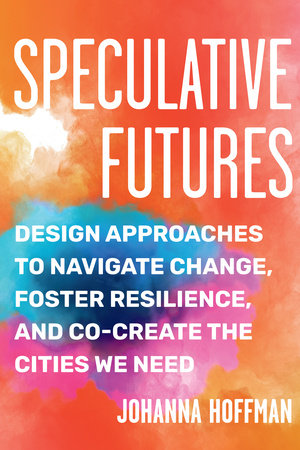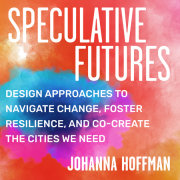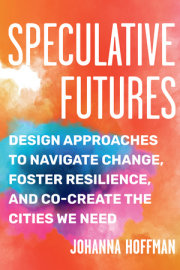How the emerging field of speculative futures can help us dream--and build--better, sustainable, and more equitable cities for everyone.
Speculative futures--design approaches that help us visualize new and potential worlds--move us beyond what currently exists into what could one day be. Inspired by art, film, fiction, and industrial design, they use speculation to provoke, imagine, and dream into what lies ahead.
Written for futurists, urbanists, and artists looking to enact city-wide transformation--and for readers at the intersection of disruption, design, innovation, and city living--this book offers creative paths toward urban resilience, using design tools that already exist.
Artist and urbanist Johanna Hoffman uses an interdisciplinary lens informed by her experience in architecture, art, engineering, and construction to examine how we can reimagine our cities at every level: as individuals, in community, and on a professional scale.
Hoffman blends precedent studies, compelling research, and professional memoir, connecting urban development issues with the processes and actions best positioned to create better solutions for our cities. The result is a dynamic field guide that uses speculative futures to imagine, advocate for, and adapt to modern scales, scopes, and speeds of change.
While this book is of great utility to professionals in the urban design and planning industries, it’s also for people who resist received, capitalistic, technocratic ways of thinking--readers who seek new solutions to old problems with anti-colonial, living-systems-oriented lenses.









